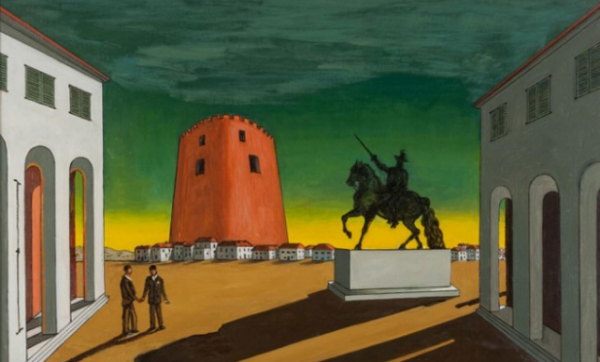Here is a list of socialist fiction literature that includes works that were written by socialists or communists, or that have strong socialist themes. This list only includes novels, not poems or plays. Let me know what books are missing, and I will add them to the list.
1888 – Looking Backward by Edward Bellamy
Bellamy responded to the problems he saw with capitalism by creating a utopian future society where private property was collectivized, anyone could eat from public kitchens, and prisons were abolished.
1890 – News from Nowhere by William Morris
Artist and poet Morris wrote this utopian socialist novel to blend together Marxism and Romanticism as a kind of alternative to Bellamy’s work Looking Backward.
1895 – The Time Machine by H. G. Wells
This classic work of science fiction was inspired by Morris’s News from Nowhere and reflected Wells’s socialist outlook by drawing attention to class inequalities and industrialization.
1900 – Sister Carrie by Theodore Dreiser
As a committed socialist, Dreiser focused on the harsh reality of capitalism in this tale of a young woman who leaves the countryside for the big city, only to discover the many difficulties for workers living in the Gilded Age.
1906 – The Jungle by Upton Sinclair
Sinclair tried to expose the exploitation of workers in the meat industry, but when the result was legislation to protect consumers, he famously stated, “I aimed at the public’s heart, and by accident, I hit it in the stomach.”
1906 – Pelle the Conqueror by Martin Andersen Nexø
Nexø was a lifelong socialist who drew upon his childhood experiences for this story that follows a young boy named Pelle as he becomes involved in working-class movements in Denmark.
1906 – The Mother by Maxim Gorky
Gorky intended this book about factory workers to motivate revolutionaries in Russia to battle against defeatist attitudes, and it was the inspiration for both Brecht’s play and Pudovkin’s film of the same name.
1908 – The Iron Heel by Jack London
Based on Marxist philosophy and economics, this science fiction novel envisioned a future United States where the Socialist Party becomes a significant movement that battles against conservatives who are threatened by the abolishment of capitalism.
1908 – Red Star by Alexander Bogdanov
A Bolshevik revolutionary, Bogdanov wrote this science fiction book to illustrate the possibilities of a socialist and technologically advanced society.
1915 – Herland by Charlotte Perkins Gilman
Mostly remembered for her short story, The Yellow Wallpaper, Gilman envisioned a feminist utopia without war where individuals are free from oppressive social structures.
1918 – Diary of a Mad Man by Lu Xun
As one of the key figures in the League of Left-Wing Writers, Lu Xun critiqued traditional Chinese culture and sought to push China towards a socialist future in this book that is rich with revolutionary symbolism.
1924 – We by Yevgeny Zamyatin
Zamyatin was a Bolshevik who fictionalized his concerns about mass surveillance in this science fiction novel about a dystopian police state that was allegedly the inspiration for Huxley’s Brave New World.
1930 – Jews without Money by Mike Gold
Communist and literary critic Gold wrote this story about poverty, loosely based on his own life growing up in a poor Jewish neighborhood in New York.
1933 – The Werewolf of Paris by Guy Endore
Blacklisted in Hollywood for being a member of the Communist Party, much of Endore’s work remains unpublished, but he is best known for this horror novel that is set during the Paris Commune.
1935 – The Green Corn Rebellion by William Cunningham
This story is a fictionalized telling of real events, when Oklahoma tenant farmers joined the Socialist Party and protested America’s involvement in World War I.
1939 – The Grapes of Wrath by John Steinbeck
Arguably the Great American Novel, this book follows a family of tenant farmers as they are forced to move to California during the Dust Bowl and come to realize the power of a unified working class in the face of capitalist oppression.
1945 – Animal Farm by George Orwell
As a democratic socialist, Orwell displayed his criticism for Stalin in this allegorical tale about farm animals who rise up against their owner hoping to create a better society, only to end up with one that looks quite similar to the previous one.
1949 – The Case of Comrade Tulayev by Victor Serge
Serge was a revolutionary Marxist writer and historian, and this novel is considered one of the best fiction works about the purges under the Stalin regime.
1951 – Spartacus by Howard Fast
This historical novel about the ancient slave revolt led by Spartacus was written by Fast after being imprisoned during the McCarthy era for his membership in the Communist Party USA.
1969 – The Foundation Pit by Andrei Platonov
As a dedicated communist, Platonov criticized Stalin’s policies of collectivization in this deeply humanist and psychological tale of workers under mentally exhausting conditions.
1974 – The Dispossessed by Ursula K. Le Guin
This utopian socialist science fiction novel addresses the problems with capitalism and explores the possibilities of an alternative world that has broken free of these restraints.
1974 – Yonnondio by Tillie Olsen
Written in the 1930s but not published until the 1970s, this story follows a working-class family from a coal mining town in the 1920s as they face a combination of economic and domestic troubles.

